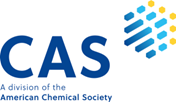Differential Prevalence of Depression Symptoms in Obese Versus Non-obese Women with Polycystic Ovary Syndrome
Investigating the Impact of Obesity on Depression in PCOS Patients
DOI:
https://doi.org/10.69750/dmls.01.03.033Keywords:
PCOS, obese, depression, prevalence, Treatment, Hyperandrogenism, Endocrine disorder, Beck Depression Inventory-IIAbstract
Background: Polycystic ovarian syndrome (PCOS) is a prevalent chronic endocrine disorder that effects on women ovaries. It is characterized by mental health issues including depression and obesity. Hence the purpose of this particular study was to determine whether depressive symptoms were more common in obese PCOS women or in non-obese women.
Methodology: The current study involved a cross-sectional design where the participants were 200 women with PCOS, and they were further divided into the obese and non-obese groups on the bases of their BMI. The depressive symptoms were assessed with the Beck Depression Inventory – II (BDI-II). Raw data were interpreted bio- statistically by applying chi-squared test and logistic regression to determine the association between symptoms of obesity and depression by using a software known as SPSS.
Results: The women of obese group with polycystic ovarian syndrome had a mean score of moderate (35.12± 0.01) and severe depressed symptoms than the non-obese PCOS women (22.11± 0.03). The applications of the logistic regression model revealed that the obesity could be considered to have a statistically significant (P≤0.05) impact on the depression symptoms.
Conclusion: Through the research that the study carried out it was discovered that obesity could be causatively related to depression in women with PCOS. These results point to the importance of the proposed features of PCOS as a complex disorder that requires a holistically oriented treatment approach that involves not only physical but also psychological factors.
Downloads
References
Rabiepoor S, Yas A. Quality of Life in Normal and Overweight Women with Polycystic Ovary Syndrome: A Cross-Sectional Study. Journal of Midwifery & Reproductive Health. 2022;10(3).
Kara O, Kaymaz N, Uzun ME. The effect of hyperandrogenism and obesity on mindfulness and metacognition in adolescents with polycystic ovary syndrome. Archives of Women's Mental Health. 2022;25(5):911-21.
Ali A, Guidozzi F. Midlife women’s health consequences associated with polycystic ovary syndrome. Climacteric. 2020;23(2):116-22.
Burgert TS, Paprocki E. Prevalence, Presentation, and Diagnosis of PCOS in Adolescents. In: Pal L, Seifer DB, editors. Polycystic Ovary Syndrome: Current and Emerging Concepts. Cham: Springer International Publishing; 2022. p. 13-26.
Ressler IB, Grayson BE, Ulrich-Lai YM, Seeley RJ. Diet-induced obesity exacerbates metabolic and behavioral effects of polycystic ovary syndrome in a rodent model. American Journal of Physiology-Endocrinology and Metabolism.2015;308(12):E1076E84. doi:10.1152/ajpendo.00182.2014
Chu Y, Hilbert J, Mohsenin V. Obstructive Sleep Apnea and Polycystic Ovary Syndrome. In: Pal L, Seifer DB, editors. Polycystic Ovary Syndrome: Current and Emerging Concepts. Cham: Springer International Publishing; 2022. p. 393-409.
Lüll K, Arffman RK, Sola-Leyva A, Molina NM, Aasmets O, Herzig K-H, et al. The Gut Microbiome in Polycystic Ovary Syndrome and Its Association with Metabolic Traits. The Journal of Clinical Endocrinology & Metabolism.2020;106(3):858-71.doi:10.1210/clinem/dgaa848
Pastore LM, Patrie JT, Morris WL, DalalP,Bray MJ. Depression symptoms and body dissatisfaction association among polycystic ovary syndrome women. Journal of Psychosomatic Research. 2011;71(4):2706.doi:10.1016/j.jpsychores.2011.02.005
Jäger P, Wolicki A, Spohnholz J, Senkal M. Review: Sex-Specific Aspects in the Bariatric Treatment of Severely Obese Women. International Journal of Environmental Research and Public Health.2020;17(8):2734.
Franik G, Krysta K, Witkowska A, Dudek A, Krzystanek M, Madej P. The impact of sex hormones and metabolic markers on depressive symptoms and cognitive functioning in PCOS patients.Gynecological Endocrinology. 2019;35(11): 9659. doi:10.1080/09513590.2019.1613359
Cai M, Ni Z, Yao Y, Yu J, Yu C, Zhou L, et al. Characteristics of Gut Microbiota and Its Relationship With Serum Sex Hormones in Non-obese Polycystic Ovary Syndrome Patients With Insulin Resistance. 2022.
Lüll K, Arffman RK, Sola-Leyva A, Molina NM, Aasmets O, Herzig K-H, et al. The gut microbiome in polycystic ovary syndrome and its association with metabolic traits. The Journal of Clinical Endocrinology & Metabolism. 2021;106(3):858-71.
Desai A, Madar IH, Asangani AH, Ssadh HA, Tayubi IA. Influence of PCOS in Obese vs. Non-Obese women from Mesenchymal Progenitors Stem Cells and Other Endometrial Cells: An in silico biomarker discovery. Bioinformation. 2017;13(4):111-5.doi:10.6026/97320630013111
Papadakis G, Kandaraki EA, Tseniklidi E, Papalou O, Diamanti-Kandarakis E. Polycystic Ovary Syndrome and NC-CAH: Distinct Characteristics and Common Findings. A Systematic Review. Frontiers in Endocrinology.2019;10.doi: 10.3389/fendo.2019.00388
Ananya P, Shailesh N. Insulin Resistance in Polycystic Ovarian Syndrome. Cureus. 2022;14(10).doi: 10.7759/cureus.30351
Wright PJ, Corbett CF, Dawson RM, Wirth MD, Pinto BM. Fitness Assessments of Women with Polycystic Ovary Syndrome: A Prospective Process Feasibility Study. CEOG.2023;50(4).doi:10.31083/j.ceog5004088
Sruthi VL, Bindu PM, Sri Y. A STUDY ON PREVALENCE OF POLYCYSTIC OVARIAN SYNDROME IN MEDICAL STUDENTS IN A MEDICAL COLLEGE. Int J Acad Med Pharm. 2023;5(3):117-22.doi: 10.47009/jamp.2023.5.3.26
Rhee SJ, Min S, Hong M, Lee H, Lee H-S, Kang DH, et al. The association between insulin resistance and depressive symptoms – A national representative cross-sectional study Journal of Psychosomatic Research. 2023;175:111502.doi:10.1016/j.jpsychores.2023.111502
Joshi B, Patil A, Kokate PP, Akula AJ, Shaikh SA, Tandon D, et al. Assessment of Health-Related Quality of Life Using PCOSQ Tool, Its Determinants and Coping Mechanisms Used by Women with Polycystic Ovarian Syndrome Attending Multidisciplinary Clinic in Mumbai, India. The Journal of Obstetrics and Gynecology of India.2023;73(2):172-9.doi: 10.1007/s13224-022-01723-x
Turkmen S, Andreen L, Cengiz Y. Effects of Roux-en-Y gastric bypass surgery on eating behaviour and allopregnanolone levels in obese women with polycystic ovary syndrome. Gynecological Endocrinology. 2015;31(4):301-5.doi: 10.3109/09513590.2014.994600
Wroolie TE, Kenna HA, Singh MK, Rasgon NL. Association between insulin resistance and cognition in patients with depressive disorders: Exploratory analyses into age-specific effects. Journal of Psychiatric Research.2015;60:65-72. doi:10.1016/j.jpsychires.2014.10.001






















